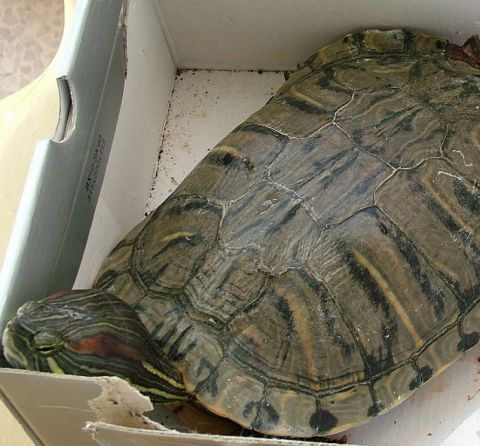
The proposed White Paper on Animal Rights in Malta recommends harsher penalties for animal abuse, Parliamentary Secretary for Animal Rights Roderick Galdes has announced.“This is a step in the right direction to deter animal cruelty,” he said. Addressing a consultation meeting, the Parliamentary Secretary explained that an Animal Rights Commissioner would be appointed while the Animal Welfare Council would be accorded greater responsibility. However he did not clarify what this extra responsibility would entail.
In recent years penalties against animal abuse have seen animal rights groups at loggerheads with the courts and legislators. Often dubbed as “paltry,” the punishments against animal cruelty are now expected to be revised. Recent statistics have revealed that there was a relative increase in animal cruelty cases as 1,123 reports have been made since 2000. These include 463 reports in the past five years, of which 78 were taken to court.
Galdes said that, in line with the Government’s Electoral Manifesto, the White Paper also includes a ban on animal circuses in Malta. Max Farrugia, Chairman of International Animal Rescue Malta, said that this was positive progress following action taken three years ago by the Director of Education to stop teachers taking their students to the circus. This year will be the first for a number of years in which circuses in Malta contain no animals.
The Parliamentary Secretary also said that the White Paper suggests the introduction of harsher penalties, including prison terms. It is being recommended that on first conviction, the minimum and maximum fine be doubled from €1,000 to €55,000 and/or a term of imprisonment for a period of three years. On second conviction, the minimum fine has been increased by €1,000 and the maximum by €30,000. Therefore offenders shall be liable to a fine ranging between €5,000 and €80,000 and/or imprisonment to a term not exceeding three years.
For the first time in Malta and also in Europe the sale of animals via the internet will be controlled. Those selling animals through the internet will first have to apply for a licence and declare whether they are a pet shop owner or a breeder. The animals cannot be put on sale before the applications are vetted.
The White Paper talks about animals in general but does not specify wildlife. However Maltese NGOs working in this field insist that that there must be compulsory registration for exotic animals. Max Farrugia emphasised the importance of this to control invasive species. “We know for sure that at least three exotic species have been introduced into the wild in recent years - a frog, turtle and fish species. They were all introduced into a small freshwater pool in Gozo and they are feeding on native species.”
The authorities also need to know what is being bred in Malta for reasons of public health and safety, as well as for the welfare of the animals concerned. It is vital that exotic animals are registered, monitored on a regular basis and housed adequately. This must be done not only for the welfare of the animals but in order to prevent them escaping into the wild.
It is internationally acknowledged that the release of exotic pets into the wild, whether intentional or accidental, will have an impact on local flora and fauna.
Max Farrugia added that most owners of exotic pets in Malta go for small mammals such as rodents and molluscs and these adapt easily to the local environment. An invasive animal which adapts itself very well in Malta is the red eared slider turtle which is a popular pet in Malta. Farrugia stated that there have been cases when these turtles have been released into the sea or into freshwater. These are easy breeders and can invade the environment quite easily.
Max Farrugia spoke out in favour of control, registration, monitoring and enforcement of exotic animals. The monitoring can be done not only by inspectors but also by the veterinary services as in the case of other animals.
Monitoring is also important from a health and safety point of view. In Malta there are a number of poisonous snakes and their whereabouts must be closely monitored.
The implications of this White Paper were presented and discussed in Brussels recently at a conference attended by Max Farrugia on behalf of International Animal Rescue Malta.

